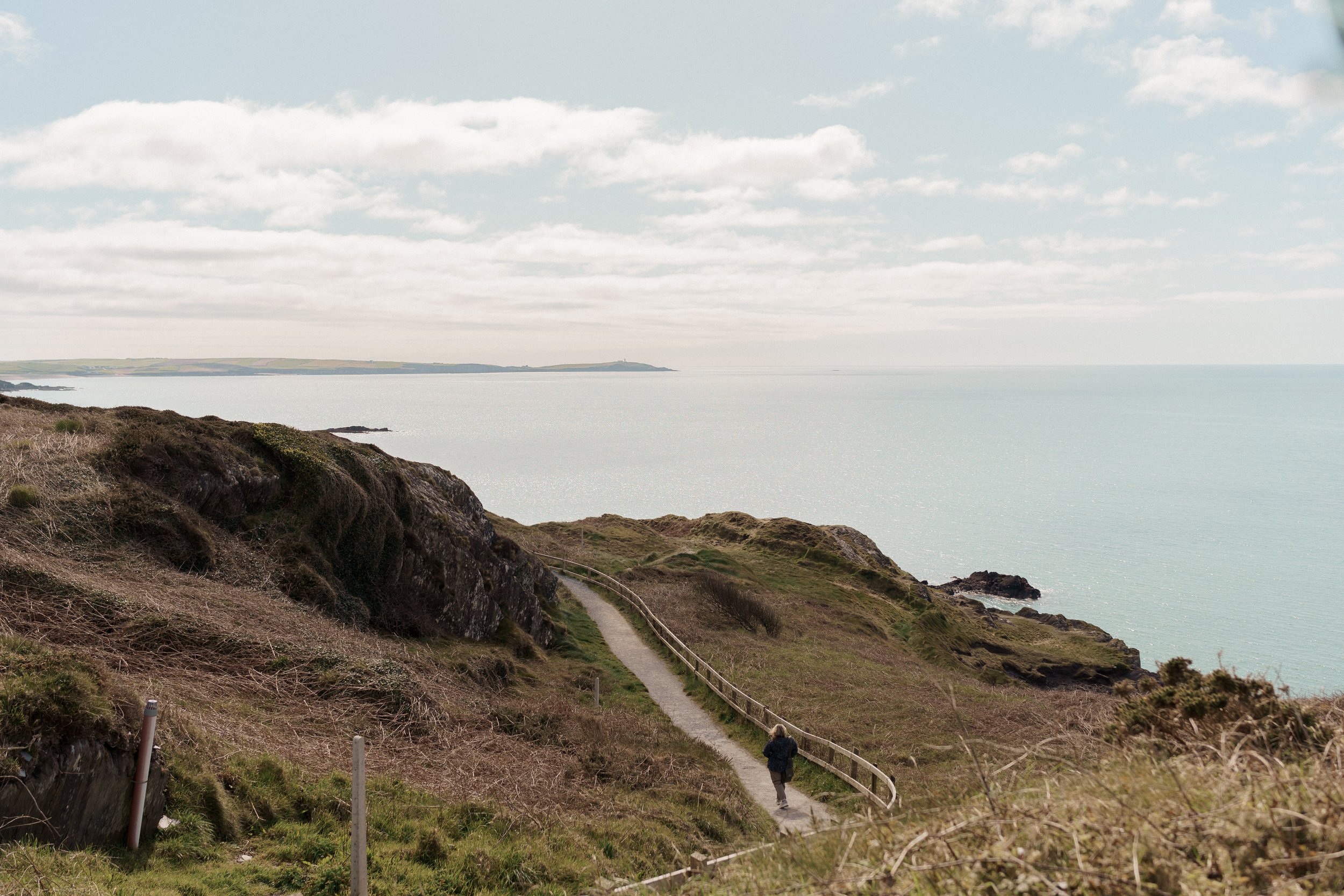
Logline
Following a sudden, tragic bereavement; Mags uncovers a tightly held secret as she navigates the fast-paced pressures of a West of Ireland tourist property turnaround.
Grief-stricken and under mounting pressure from landlord Martina, Mags must decide if she will risk everything to help a friend.

Synopsis
Whilst turning over a luxurious West of Ireland rental property in preparation for the next influx of tourists, Mags (late 50s) faces a sudden and shocking bereavement when her closest friend and companion Ann (60) drops dead. Returning to the job a number of weeks later, Mags struggles emotionally, and physically, to meet the pressures of doing it alone; weighed down by the sheer scale of both her grief, the cleaning task at hand and a pair of bad knees. While the well-heeled but tight-fisted property owner Martina (40s) applies continuous out-of-hours pressure for her to bend to the whims of arriving American house guests, Mags makes a shocking discovery in the form of Hana (20s) a young, displaced woman that Ann had been hiding and helping in an annexed outhouse of the large rental property, having fled temporary accommodation from an abusive partner.
Grief stricken, furious and struggling financially to keep up the cottage and cost of living that the two friends shared, Mags must decide if she has the energy or the will to pick up any more of the pieces that Ann left behind. But as a burgeoning friendship begins to flourish with the empathetic and tenacious Hana, Mags makes the redemptive discovery that by helping others – with a small dose of poetic justice, she might end up helping herself.
Writer & Director Aisling Byrne
Director’s Statement
Turnaround is a story about grief, loss, healing, and hope. It focuses on ordinary women facing extraordinary circumstances, set in a contemporary and authentic Ireland. At its core, Turnaround explores themes of class, economic struggle, and the redemptive power of female friendship. Visually and tonally, I wanted to make a film that would juxtapose the cinematic magnificence of the West of Ireland landscape with an intimate portrayal of the ordinary lives within it.
Across all my work I am drawn to crafting character-driven narratives that highlight seldom-heard voices and offer new perspectives from within our communities in contemporary Ireland. Turnaround was a film that was inspired by a personal story, when someone close to me took on the work as cleaner and keyholder, turning over luxury properties for a largely wealthy, American clientele holidaying in Ireland. I was inspired by the enormously cinematic metaphor of the high-end holiday home ‘turnaround’, wiping the slate clean week after week so that the performance could begin again.
Tonally and thematically films like Sean Baker’s The Florida Project, and Chloe Zhao’s Nomadland influenced the development of these ideas– character-driven narratives focus on the lives of people within the larger contemporary mechanism and machine. With Turnaround I wanted to thematically explore the contemporary social realities of the people who occupy one of our most cinegenic landscapes- a landscape that is so often performatively packaged by the tourist industry to perpetuate well worn tropes of ‘Irishness’. I wanted to craft a story that shone a light on what I feel bears more resemblance to the real, authentic stories of Irish women– women facing the hardships of economic struggle and displacement– women who could not hope to afford even a single night's accommodation in the property that they clean weekly.
However, Turnaround is less about these divisions and more about what unites us. It’s about women helping women, the universal experience of grief, and the communities formed through shared experience and solidarity.
In the brief glimpse we are afforded into Ann and Mags relationship we see that it is their friendship that sustains them despite the ardour of their low income day job. The sheer importance of their companionship is highlighted by Mags’s sense of deep loss upon Ann’s passing. Her grief is overwhelming, as now too is the job and that lies ahead without her. When Hana reveals her presence, we realise that Ann’s solidarity and support for women within the wider community was farther reaching than Mags had known. In her initial anger and overwhelming grief; Mags fails at first to realise what she will discover in time- that Hana will ultimately help Mags more than she could ever hope to help her. In their burgeoning friendship - through which we glimpse an insight into the empathy and incredible tenacity of Hana- a young displaced woman who came to Ireland for a protection she has not been afforded- Mags is offered some much needed assistance with the turnaround at hand, but also a brief respite from her own loneliness and an opportunity to begin to heal from her grief and shock at Ann’s passing.
While Mags's situation remains largely unchanged by the film's end, the redemptive power of female friendship, mutual support, and a sense of justice provide a symbolic relief, lightening her load.
